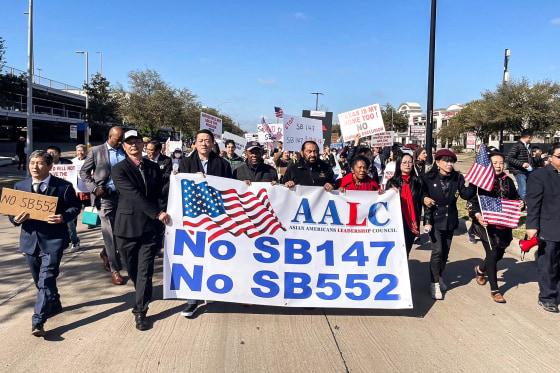Texas Legislature Advances Bill Restricting Property Ownership by Select Chinese Nationals
The Texas House of Representatives has recently passed a contentious bill designed to restrict property ownership rights for specific Chinese nationals within the state. Proponents of the legislation argue that it is a necessary step to safeguard Texas’ real estate market and protect national security interests from potential foreign government influence. The bill focuses on individuals purportedly connected to the Chinese Communist Party, barring them from purchasing both residential and commercial real estate.
Highlights of the legislation include:
- Prohibition on property acquisitions by Chinese citizens linked to governmental or military entities.
- Enhanced background checks and verification procedures for foreign property buyers.
- Enforcement mechanisms involving penalties such as property confiscation and monetary fines for violations.
This legislation has ignited vigorous discussions about immigration policy, international diplomacy, and economic equity. Critics argue that the bill unfairly targets individuals based on nationality and risks damaging diplomatic relations between the U.S. and China.
| Bill Component | Description |
|---|---|
| Property Types Covered | Residential units, condominiums, commercial properties |
| Targeted Individuals | Chinese nationals with official government or military affiliations |
| Regulatory Authority | State real estate regulatory bodies |
| Consequences for Non-Compliance | Seizure of property and financial penalties |
Legal and Economic Consequences of Restricting Foreign Property Ownership
Restricting property ownership for foreign nationals, particularly targeting Chinese citizens, raises complex legal and economic issues. From a legal perspective, such restrictions may conflict with international trade agreements and constitutional safeguards against discrimination. Opponents warn that singling out a nationality could set a precedent for further exclusionary policies and provoke retaliatory measures from other nations. Additionally, enforcing these restrictions poses challenges due to the use of intricate corporate structures and trusts that can mask true ownership.
Economically, limiting property purchases by a specific group could slow growth in Texas’ dynamic real estate market. Chinese investors have historically contributed significantly to property demand, and their exclusion might lead to decreased sales volumes, impacting property values and related industries such as construction and local services. Recent market analyses suggest the following potential effects:
| Economic Indicator | Projected Impact |
|---|---|
| Foreign Buyer Transactions | Estimated 5-10% reduction in sales involving foreign nationals |
| Property Market Prices | Potential stabilization or slight decline in select regions |
| Local Government Revenue | Decrease in property tax collections from foreign-owned assets |
| Investment Environment | Perceived increase in regulatory risks deterring investors |
- Legal disputes could delay or complicate enforcement.
- Economic diversification efforts may be necessary to compensate for reduced foreign capital.
- Diplomatic tensions might escalate, affecting broader international cooperation.
Civil Rights Advocates and Texas Chinese Community Respond to Legislation
Civil rights organizations have swiftly criticized the bill, describing it as discriminatory and a violation of constitutional rights. Representatives from groups such as the Texas ACLU and local NAACP chapters warn that targeting individuals based on nationality risks fostering racial profiling and xenophobia. They emphasize that such policies could fracture community cohesion and undermine ongoing efforts to promote equality and inclusion.
The Chinese community in Texas has expressed profound concern and confusion regarding the bill’s enactment. Community leaders highlight the adverse effects on lawful property owners who have long contributed to the state’s economic and cultural fabric. Several Chinese cultural associations have called for solidarity and legal challenges, urging policymakers to adopt more inclusive approaches that encourage dialogue and mutual understanding rather than division. These reactions reflect widespread anxiety about increasing mistrust amid rising geopolitical tensions.
Experts Advocate for Comprehensive Review to Mitigate Diplomatic and Market Risks
Policy analysts and international relations experts recommend that Texas legislators undertake a detailed evaluation of the property ownership restrictions targeting Chinese nationals. They caution that without careful reconsideration, the bill could provoke unintended diplomatic conflicts between the United States and China, potentially triggering retaliatory actions. Moreover, the legislation’s impact on foreign investment flows could alter the dynamics of Texas’ real estate market.
Experts highlight several critical concerns:
- Disruption of cross-border capital investments affecting local economies.
- Heightened diplomatic friction potentially undermining trade negotiations and bilateral cooperation.
- Legal challenges related to property rights and compliance with international treaties.
| Stakeholder | Main Concern | Possible Consequence |
|---|---|---|
| Texas Real Estate Sector | Decline in foreign buyer interest | Slower market expansion |
| Diplomatic Relations | Escalation of tensions with China | Complications in trade discussions |
| Legal Community | Disputes over property ownership rights | Increase in litigation cases |
Final Thoughts on Texas Property Ownership Restrictions
As the bill advances to the Texas Senate for further deliberation, its approval by the House marks a pivotal moment in the ongoing discourse surrounding foreign property ownership and national security. Supporters maintain that the legislation is vital for protecting Texas’ real estate markets and critical infrastructure. Conversely, opponents warn of potential diplomatic fallout and concerns over fairness and discrimination. Stakeholders and observers alike will be closely monitoring the legislative process and its broader implications in the months ahead.







